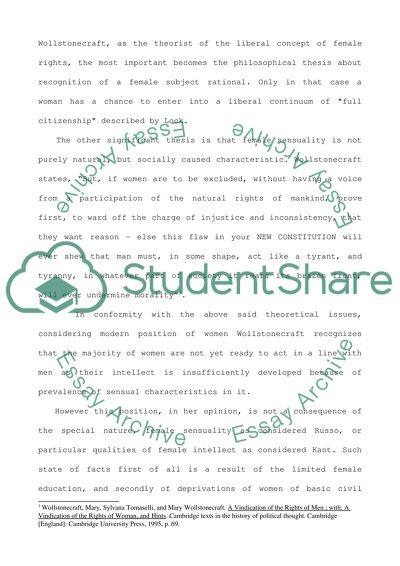Cite this document
(“Mary Wollstonecrafts A Vindication of the Rights of Woman Essay”, n.d.)
Mary Wollstonecrafts A Vindication of the Rights of Woman Essay. Retrieved from https://studentshare.org/miscellaneous/1503549-mary-wollstonecrafts-a-vindication-of-the-rights-of-woman
Mary Wollstonecrafts A Vindication of the Rights of Woman Essay. Retrieved from https://studentshare.org/miscellaneous/1503549-mary-wollstonecrafts-a-vindication-of-the-rights-of-woman
(Mary Wollstonecrafts A Vindication of the Rights of Woman Essay)
Mary Wollstonecrafts A Vindication of the Rights of Woman Essay. https://studentshare.org/miscellaneous/1503549-mary-wollstonecrafts-a-vindication-of-the-rights-of-woman.
Mary Wollstonecrafts A Vindication of the Rights of Woman Essay. https://studentshare.org/miscellaneous/1503549-mary-wollstonecrafts-a-vindication-of-the-rights-of-woman.
“Mary Wollstonecrafts A Vindication of the Rights of Woman Essay”, n.d. https://studentshare.org/miscellaneous/1503549-mary-wollstonecrafts-a-vindication-of-the-rights-of-woman.


